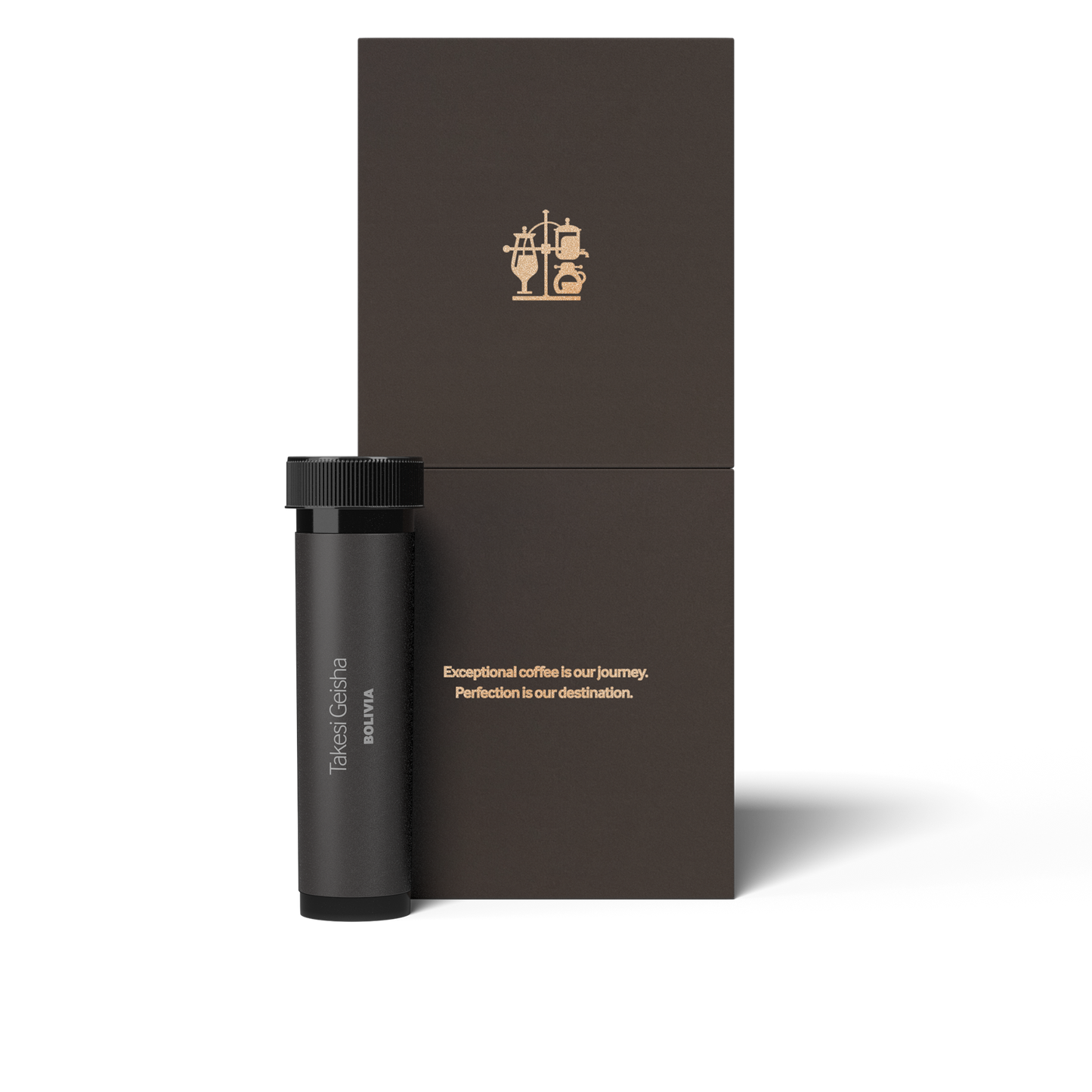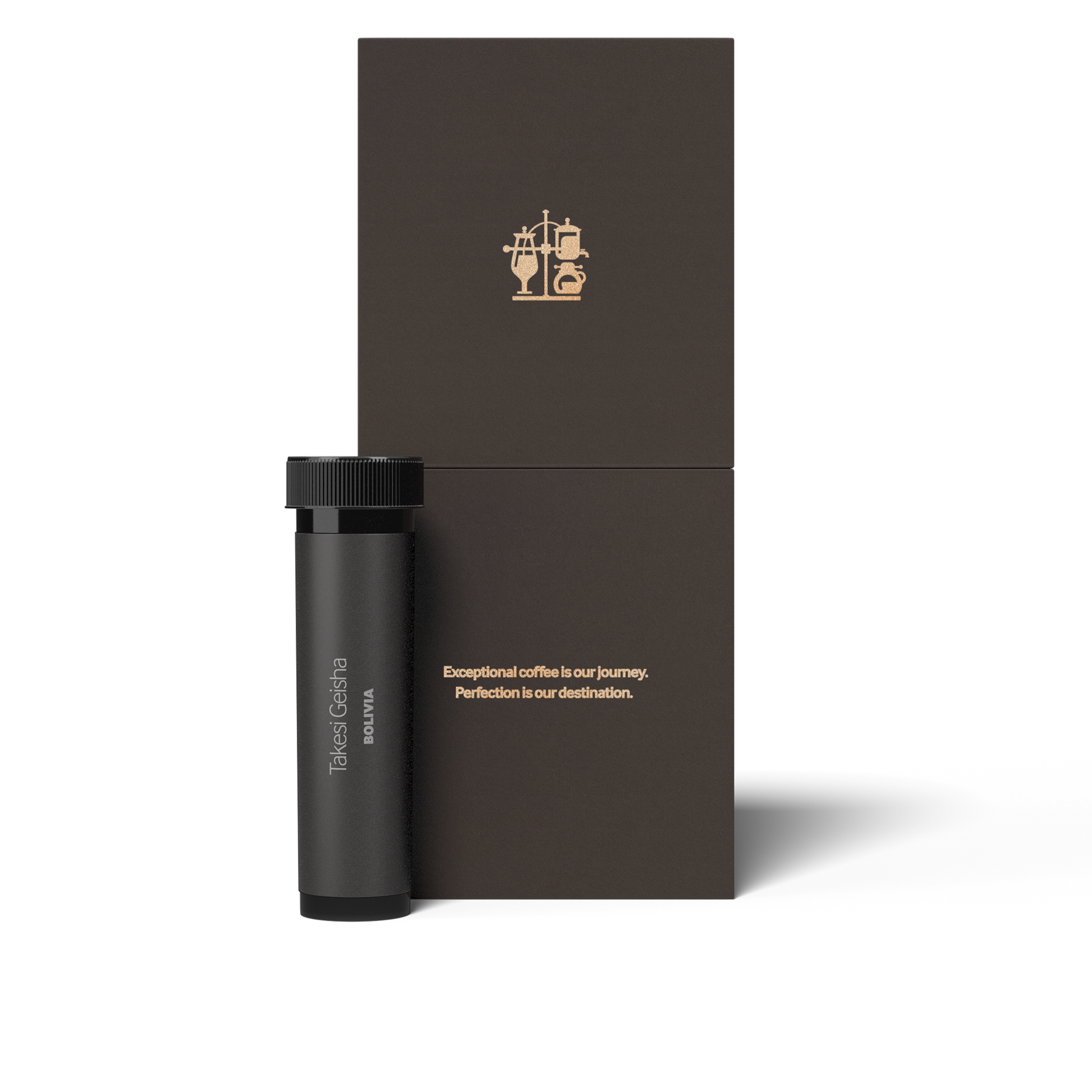Bolivia
Takesi Geisha
Takesi Geisha
 65.00
TAX Inclusive
65.00
TAX Inclusive
Couldn't load pickup availability
Tasting Notes
Coffee Blossom, White Peach, Bergamot & Peaches.
Roast Level

Process

Particulars
| Elevation: | 2,300 m |
| Variety: | Geisha |
| Process Type: | Washed |
| Producer: | Mariana Iturralde |
About this Specialty Coffee
High in the Andes Mountains, where the clouds embrace the peaks and the soil breathes with ancient richness, lies a piece of land that has quietly become one of the most revered origins in the world of specialty coffee. Since 1973, the Iturralde family has owned this land, but it wasn’t until the early 2000s that its destiny shifted toward coffee. The Espresso Lab's relationship with Finca Takesi stems from a deep admiration for stories like this—where vision meets terroir, and greatness unfolds.
The transformation began when a Colombian agronomist visited the land and remarked on its exceptional altitude and organic richness. Encouraged by this encounter, the family embraced the challenge of coffee farming. Today, their farm, Finca Takesi, managed by Mariana Iturralde and her father Don Carlos Iturralde, is celebrated for producing some of the world’s most extraordinary coffees. At The Espresso Lab, we have followed their journey closely—visiting regularly to witness the evolution firsthand and to deepen the dialogue around quality and craftsmanship.
“In 2001, a Colombian gentleman told my father that the soil here was incredibly fertile, and with our elevation, we might be able to grow one of the highest-elevated coffees in the world,” Mariana shares during our most recent visit in October. It’s this kind of pioneering spirit that resonates deeply with us at The Espresso Lab.
Located in a unique microclimate of the Bolivian Andes, Finca Takesi benefits from an equilibrium of altitude, rainfall, sun, and soil that is rarely found. The result is a terroir that not only allows for coffee to grow—but for it to thrive in a way that is truly rare. This balance is something we celebrate, as it directly contributes to the distinct profiles we seek to share with our community.
In the early 2000s, the United Nations Development Programme’s Cup of Excellence initiative helped introduce new varietals and elevate Bolivia’s coffee potential. With support from this quality-driven movement, the Iturraldes planted their first Typica seedlings in 2002. “That’s how it all started,” Mariana reflects, and it’s a beginning that would eventually lead to remarkable heights—both literal and metaphorical.
After nearly a decade of cultivating Typica, Finca Takesi introduced Geisha to their farm in 2010. “We weren’t sure how the Geisha would do up here,” Mariana says. “But the productivity surprised us. It outperformed Typica in yield and health.” When they first cupped their Geisha, the reaction was immediate and unanimous—it was something special. Soon after, three hectares were dedicated to the varietal, which continues to astonish in both complexity and quality.
Finca Takesi’s distinction doesn’t stop at the cup. Their model of sustainability, with a focus on permanent employment and continuous skill-building, ensures that every cherry is hand-picked at peak ripeness and that every step of the process is executed with intention. At The Espresso Lab, we are proud to work with producers who invest in their people as much as their plants—because we believe that excellence begins with knowledge and care.
As we sat beneath the Andean sky, sharing stories with Mariana and Don Carlos, we were reminded once again why we do what we do. Every coffee we bring to The Espresso Lab carries a lineage, a vision, and a deep-rooted sense of place. Finca Takesi is more than a farm—it is a philosophy. And we are honored to be part of their journey, one cup at a time.
Share





